Documentation
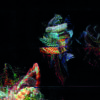
Doing an Internship at Transmission in Motion
Transmission in Motion is always looking out to expand its network, exchange ideas and explore new perspectives on ongoing research. Master’s students who are interested in our work and would like to engage more closely with our projects have the possibility of undertaking an internship at Transmission in Motion and become part of our research…
Read more
Transmission in Motion Seminar (2019-2020): “Expanded Practices of Knowing: Interdisciplinary Approaches”
Technological developments inform the ways information travels through media, turn archives into ‘dynarchives,’ and set knowledge cultures in motion. Such developments foreground the performativity of practices of sharing knowledge and the materiality of mediation; moreover, they point to the sensory, movement and embodiment as important aspects to take into account. This year’s seminar will investigate…
Read more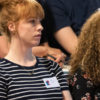
“Performing Robots Conference: Dialogues Between Theater and Robotics”
The Performing Robots Conference took stock of interactions between theatre and robotics so far and looked at possibilities for future collaboration. Over the course of three days, there were more than 25 presentations and demonstrations, which included keynote addresses by Peter Eckersall (CUNY), Maarten Lamers & Peter van der Putten (Leiden University), Petra Gemeinboeck (UNSW)…
Read more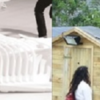
“Questions struggling to be asked” – Ieva Pranckūnaitė
On the 16th of May, 2019, the first two volumes of the new book series Thinking Through Theatre were launched: Thinking Through Theatre and Performance, edited by Joe Kelleher (Roehampton University, London), Adrian Kear (University of the Arts, London), Heike Roms (University of Exeter, UK) and Maaike Bleeker (Utrecht University) and Nomadic Theatre: Mobilizing Theory…
Read more
“Craftsmanship as a Common: Discovering Intersections Between Science, Craft, and Performance” – Mavi Irmak Karademirler
For the final Transmission in Motion seminar, Prof. Dr. Roger Kneebone and Dusia Kneebone talked on the relationalities between medical practice and craftsmanship and pointed out to the potentials of them informing each other in terms of practice. Coming from a medical background and being a professor of anatomy, Professor Roger Kneebone also directs the…
Read more
“The Gesture of Letting Go” – Laura Jimenez Rojas
The last TiM seminar of this year “The Art of Performing Science” brought a new perspective to think of the meeting of two -apparent- separate worlds: art and medicine. Roger Kneebone, professor of surgical education and director of the Centre For Performing Science at Imperial College London, presented how by the gathering of artists and…
Read more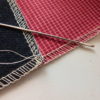
“Sewing, sewing, sewing” – Jose Hopkins B.
In her book Travelling Concepts in the Humanities: A Rough Guide, Mieke Bal (2002) presents us with a particular way to understand the performance of concepts and its relation with subjects and objects. She argues that concepts are not fixed as they travel between disciplines, individual scholars, geographically dispersed academic communities and so on. Therefore,…
Read more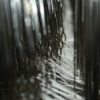
“A contextualization of interdisciplinarity” – Gido Broers
What is context? Since context is a concept that can be applied to many domains and functions as a base for interdisciplinary research (and practice), it is relevant to start here with a brief description of this concept, as described by Kaiyu Wan: The word “context” is derived from the Latin words con (meaning “together”)…
Read more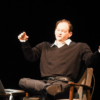
“Walking Through an Uncanny Valley” – Jose Hopkins B
The Uncanny Valley is a concept coined by Masahiro Mori and borrowed by theatre director Stephan Kaegi[i] to make a homonymic performance. This concept is used to explain the dip in human’s affinity and affective pairing in relation to a replica’s human likeness. The valley’s dip is produced when an apparently human-like replica, for example…
Read more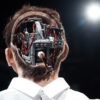
“(Human) being: striving for perfection” – Gido Broers
While attending and participating in the Performing Robots Conference I have been thinking a lot about the relation between humans and robots and the different kind of questions that emerge out of this relation. In most of the panels, lectures, and performances this relation – or interaction – was used as a starting point for…
Read more
